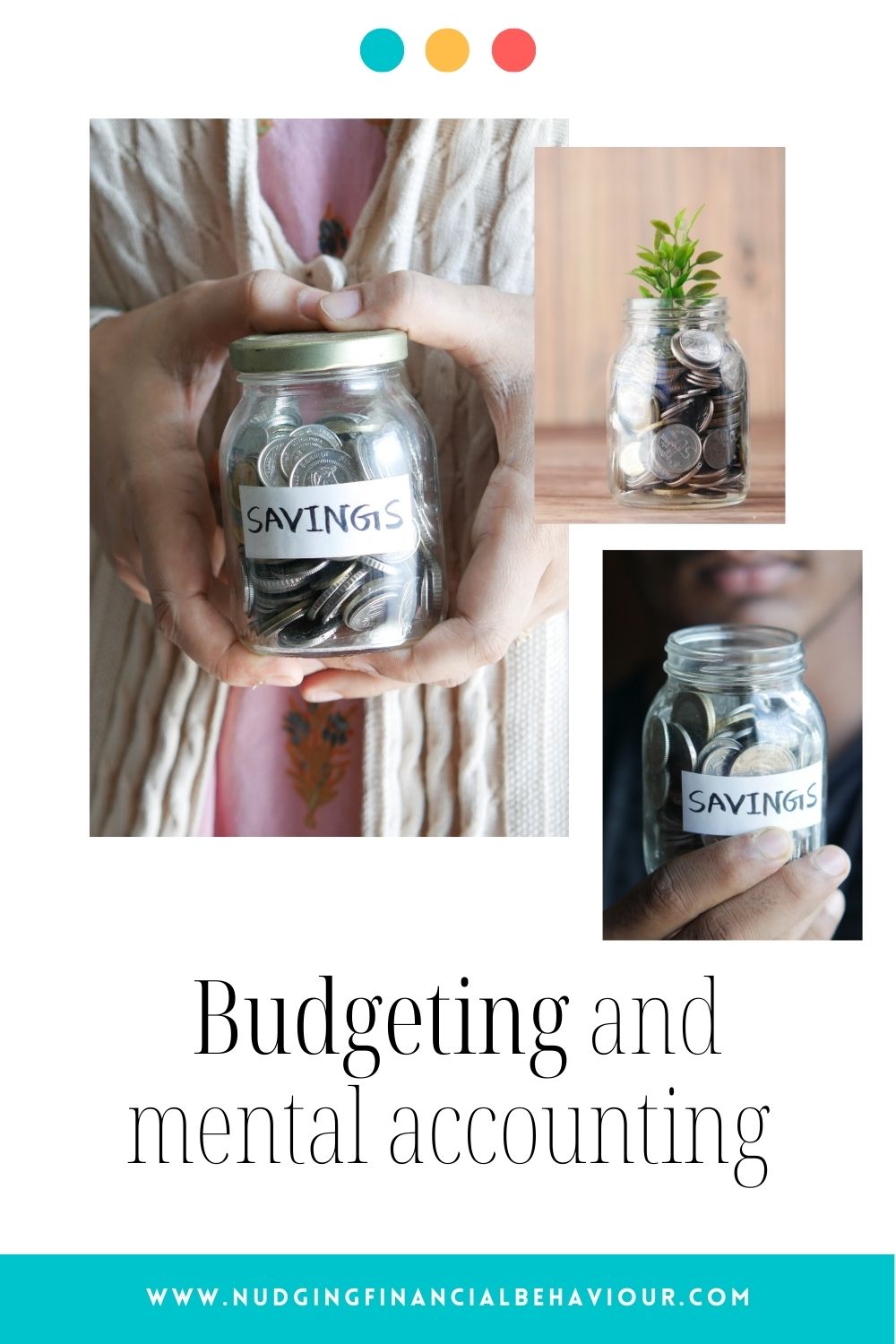Mental accounting is everywhere. We use it so regularly that we don’t even know we’re doing it. It’s a process whereby we segregate money into different ‘accounts’ and then apply different sets of rules to these accounts.
One of the many characteristics of money is that it is fungible. This means that it can be used interchangeably. At least, that’s what economic theory tells us. But mental accounting tells us it’s not as simple as that. Sorry Adam Smith.
Tax refunds are a great example of how we apply mental accounting. Because it’s money we weren’t necessarily expecting, we tend to be more reckless with it. We might spoil ourselves with a new pair of shoes, even though in the preceding months we’ve been very good about using all spare income to pay down debt.
The same happens with bonuses. I suppose the name ‘bonus’ doesn’t help, as it denotes that it’s something extra and should thus be viewed differently. Therefore, we use the money to go on holiday.
To clarify, there’s nothing wrong with going on that holiday or buying those pair of shoes. The problem is that we’re completely unaware that we’re segregating the money into different pots. Awareness of mental accounting is key!
When people ask me which behavioural bias is my kryptonite, this is it. I’m very guilty of mental accounting bias.
I regularly make this mistake when I assess how much I’ve spent on groceries every month. One month I spend less than I budgeted and I start to feel very proud of my frugalness. But then that bubble gets popped when I realise I’ve overspent on entertainment i.e., I ate out a lot that month.
Next month, I’m down because I’m spending way too much on groceries. But then I’m also eating at home every night and have excess money to go out.
Money is meant to be fungible, used interchangeably i.e. money is money is money. Share on X
This has always been my counter-argument: I have a budget. Or, it is my way of rationalising my irrationality? If you have a budget, you’re naturally applying mental accounting theory. And it’s not a terrible thing to do (in my opinion).
The best way to teach your children to save is to have jars where they can visually see ‘this is for the holiday’, ‘this is for toys’, and ‘this is to help others’. Without the jars, they run the risk of using it all to buy the latest game. But, we’re teaching our children to use mental accounts.
These are relatively minor transgressions though. The real problem only comes in when you’re unable to ‘see’ the separate accounts.
This has always been my counter-argument: I have a budget. Or, it is my way of rationalising my irrationality? If you have a budget, you’re naturally applying mental accounting theory. And it’s not a terrible thing to do (in my opinion).
The best way to teach your children to save is to have jars where they can visually see ‘this is for the holiday’, ‘this is for toys’, and ‘this is to help others’. Without the jars, they run the risk of using it all to buy the latest game. But, we’re teaching our children to use mental accounts.
These are relatively minor transgressions though. The real problem only comes in when you’re unable to ‘see’ the separate accounts.

Mental accounting can become problematic when it contributes to our sunk cost fallacy. This is our tendency to continue with a certain behaviour for longer than we should, because we’ve already invested time or money in it.
If you’ve opened a mental account where you’ve bought a ticket to go to an outdoor sports event, and then when the day of the event arrives the weather is storming and you’re not feeling well, your sunk cost fallacy reminds you that you’ve already paid for the ticket, you should go. And your mental accounting reaffirms this by telling you that the money you spent was specifically for this ticket for this event. More accurately though, it’s just money that you’ve spent.
It’s no surprise that Richard Thaler’s seminal study: “mental accounting and consumer choice” highlighted the implications of mental accounting in marketing, particularly pricing. Mental accounting matters.
We use funny mental accounting all the time, to trick ourselves into spending more.

We now know that with mental accounting, we segregate money into different accounts and then apply different rules to them. But do you know how this can lead to some seriously strange behaviour in investing?
The way me might assign different rules to different holdings is not irrelevant. If each holding is seen as a separate account then loss aversion and regret aversion are going to pop up all the time! Some investors also segregate between ‘safe’ and ‘risky’ investments. And then they’ll behave more recklessly with the latter. If we combined our holdings then we can aggregate losses against gains. Isn’t this a much better way to reduce the pain, and… notably, prevent knee-jerk over-trading?
There is countless research telling us that we hold losers and sell winners and why that is problematic. Looking at your portfolio as exactly that, a portfolio, can greatly limit these repetitive mistakes.
Don’t get too clever though. We still need to be mindful of a poor performing share, or expenses that aren’t good value for money. So yes, it’s all the same pot of money. But don’t let that be an excuse.
Mental accounting supports the notion that if an investment doubles in value we can sell half of it and let the other half run for “free”. I’m really hoping (after reading everything that has come before this) that you can agree that this is utter mathematical nonsense! But, it’s the way behavioral decision making works.
Mental Accounting Alarm clocks and Christmas clubs are external devices people use to solve their self-control problems.
Let me share two behavioral economics examples from Dan Ariely’s work.
Imagine a friend’s car breaks down and they ask you to come pick them up. I’m hoping you’d say “sure thing” and get in your car to go do so. Now let’s imagine it differently. What if that same friend phoned and asked you to pick them up but they offered you three dollars to do so? You’d likely be insulted.

This doesn’t make much sense. In the first example you’re doing it for free. In the second, you’re three dollars richer. But, in the ‘free’ example the transaction was one of social currency. When money isn’t on the table, you do it because it’s your friend. You could have easily called an Uber to pick up your friend, but you’re doing them a favour. But once the example changes to your friend offering you three dollars, it moves from the social market to the monetary market. And in the latter, three dollars for your time is insulting.
This is why you can take a nice bottle of wine to your friend’s house for dinner and they’ll likely appreciate it. But if you leave the same value of money underneath your plate to say thank-you for the dinner they’ll likely feel offended. We’re a fickle species.
This doesn’t make much sense. In the first example you’re doing it for free. In the second, you’re three dollars richer. But, in the ‘free’ example the transaction was one of social currency. When money isn’t on the table, you do it because it’s your friend. You could have easily called an Uber to pick up your friend, but you’re doing them a favour. But once the example changes to your friend offering you three dollars, it moves from the social market to the monetary market. And in the latter, three dollars for your time is insulting.
This is why you can take a nice bottle of wine to your friend’s house for dinner and they’ll likely appreciate it. But if you leave the same value of money underneath your plate to say thank-you for the dinner they’ll likely feel offended. We’re a fickle species.

Mental accounting is partly a framing issue. Recall that with framing, we make decisions that are influenced by the manner in which information is presented.
So we then create a frame such as ” savings account for a holiday”. This is great in the sense that it then focuses us to save for that financial goal. But its peril is that it creates the illusion that the money isn’t transferable. If you’re sitting with high interest credit card loans, it might make more sense to pay that down first. But you rack up debt on the one side and go on holiday on the other side. And when we start manipulating those frames, boy oh boy, does it allow other biases to creep in.
Mental accounting – when our deceitful brain plays tricks on us. Share on XMental accounting is one of the most useful behavioural biases when it comes to predicting the behaviour of others. You can always assume that someone is viewing their portfolio in different mental accounts. In fact, you can take this beyond money and financial activities. Carefully observe how people make decisions on just about everything.
For yourself, don’t pretend that some money is more important than others. Budgeting is good (here I go substantiating my own mental accounting problem) but you need to track your investments in one place. This is essential for wealth management.
Assess your portfolio of investments as exactly that – a portfolio of investments. Feeling pleased when some investments do well and resentful when others don’t, is mental accounting. The reason we invest in more than one asset is because we want to diversify our overall risk. Thus, we should assess our relative performance, overall.
Listen to a 6 minute interview with Dr Gizelle Willows and Simon Brown about how mental accounting can lead to some real problems
Let us know in the comments below.
I am passionate about helping people understand their behaviour with money and gently nudging them to spend less and save more. I have several academic journal publications on investor behaviour, financial literacy and personal finance, and perfectly understand the biases that influence how we manage our money. This blog is where I break down those ideas and share my thinking. I’ll try to cover relevant topics that my readers bring to my attention. Please read, share, and comment. That’s how we spread knowledge and help both ourselves and others to become in control of our financial situations.

Dr Gizelle Willows
PhD and NRF-rating in Behavioural Finance
Receive gentle nudges from us:
[user_registration_form id=”8641″]
“Essentially, all models are wrong, but some are useful.” – George E.P. Box
